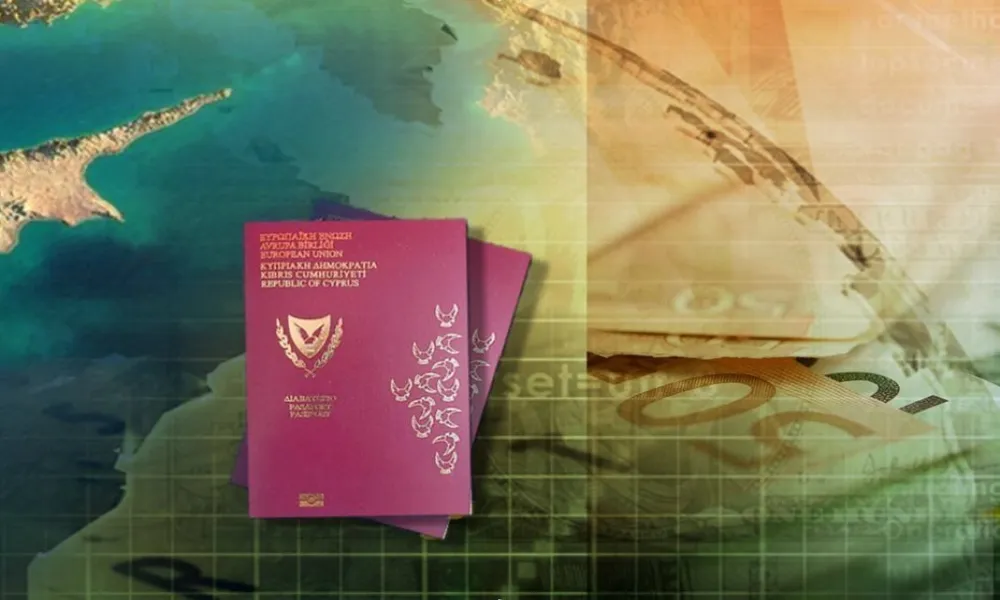The Cabinet continues to revoke ‘golden’ passports at a steady pace, as new cases emerge of major investors who turned out to be fraudsters and criminals.
At its meeting yesterday, the Cabinet decided, following a recommendation by Interior Minister Constantinos Ioannou, to strip Cypriot citizenship from another seven investors and 19 of their family members. According to the same information, further revocations are expected at the Cabinet’s next session.
Based on the data collected, the following picture emerges:
- Under the administration of President Nikos Christodoulides, from 1 March 2023 to date, the Cabinet has issued a total of 35 decisions stripping Cypriot citizenship from 35 investors and 87 of their family members, 122 ‘golden’ passports in all.
- Successive Cabinets, past and present, have decided on the revocation of 332 ‘golden’ passports in total, covering 95 investors and 237 family members. In 112 of those cases, 33 investors and 79 relatives, the procedure has been completed with the issuance of Citizenship Deprivation Orders, meaning their identity cards and passports were cancelled.
- Other suspicious cases of foreign investors remain under investigation by the Ministry of the Interior. Almost all of the investors who lost their ‘golden’ passports had been flagged as high-risk by the Nicolatos Inquiry Committee, and are being examined by special police units set up to investigate possible criminal offences.
Grounds for deprivation
‘Golden’ passports are revoked where it is confirmed that they were obtained fraudulently, through false representations or by concealing material facts. These mainly involve cases of investors facing pending criminal proceedings in their home countries or elsewhere, being wanted by authorities, under arrest, or convicted of serious offences. In short, they lacked a clean criminal record, were not of ‘good character’, and therefore were never entitled to Cypriot citizenship in the first place.
The Cabinet has given specific instructions for revocation in the following cases:
- False statements and misleading information: Some investors claimed they were unable to travel to Cyprus to sign their naturalisation certificates, while their lawyers cited false professional obligations. In reality, the investors were being held in custody in their own countries on criminal charges.
- Convicted investors: The Nicolatos Committee found that several investors had extensive criminal records. They were convicted of serious crimes, sentenced to lengthy prison terms, and listed on Interpol’s international wanted persons database.
- Investors under indictment or wanted: Being under investigation or in pre-trial detention is not, by itself, grounds for deprivation. However, in a large number of cases, the Nicolatos Committee recommended ongoing monitoring so that, in the event of conviction, Article 113(3) of the Population Register Law could be applied to revoke citizenship. Charges faced by these investors include corruption, conspiracy, tax evasion, embezzlement, fraud, money laundering, participation in criminal organisations, and involvement in illegal gambling operations. In some cases, following final convictions, the revocation process was initiated immediately.
- Failure to meet naturalisation conditions: In cases where properties forming the basis of investment or permanent residence were incomplete at the time of approval, the Cabinet required investors to submit annual progress certificates to the Interior and Finance Ministries, and final delivery certificates once construction was completed. Decisions made clear that failure to comply could lead to revocation. In many instances, however, no such certificates were ever submitted. In some cases, investors sold the properties after naturalisation and left Cyprus, keeping only their passports.
Right to be heard
The deprivation of Cypriot citizenship is governed by Article 113 of the Population Register Law, 141(I)/2002. This grants the Cabinet the power to strip citizenship through a Deprivation Order, provided that the legal conditions are met.
Before such an order is issued, the law requires that the affected individual be informed in writing of the grounds and of their right to appeal to the independent Citizenship Deprivation Review Committee. Following a Cabinet decision, the Cabinet Secretary issues a letter notifying the individual of both the decision and their right to lodge an objection.
The Review Committee advises the Cabinet on deprivation cases. It issues its opinion by majority, providing detailed reasoning. The Cabinet then examines the committee’s report before issuing the final Deprivation Order.
The Committee is chaired by a representative of the Law Office of the Republic, with the Auditor General and the Permanent Secretary of the Justice Ministry (or their representatives) as members.
